Course Spotlight: Chimpanzee Biodiversity and Conservation in Cameroon
Photos by Ian Nichols, PhD student in biology
September 20, 2019
Most undergraduate biology courses don’t take place in a foreign national park, or require an independent, chimpanzee research project — but Chimpanzee Biodiversity and Conservation is not your average biology course.
This summer, Drexel University Professor Mary Katherine Gonder, PhD, led the three-week intensive field research course, aimed at teaching students the fundamentals of tropical field research while bringing U.S. and African students together to promote regional partnerships. Participants included students from Drexel, Swarthmore College, the National University of Equatorial Guinea, and Cameroon’s University of Dschang, University of Yaoundé, Higher Institute of Environmental Sciences and Wildlife College of Garoua.
Students worked out of the Ganga Research Station, a remote field site founded in 2016 by Gonder and Ekowge Abwe, PhD, a graduate of Drexel’s biological sciences doctoral program. Located within Cameroon’s Mbam and Djerem National Park, Ganga Station is a haven for wildlife, including 13 primate species and a population of nearly 1,000 chimpanzees.
For several weeks, students experienced the incredible work of the Ganga researchers, including chimpanzee tool identification, walking transects to record evidence of chimpanzees and other mammals, identifying feeding patterns from feces and identifying plant diversity in standardized plots.
Ian Nichols, a wildlife photographer and PhD student in biology, chronicled their adventures through photos and videos.
Welcome to the Ganga Research Station!
From Yaounde, Cameroon's capital, it takes over a day of travel via car, train, pirogue (dugout canoe), and lastly by foot to reach this remote station. The field site is a joint project operated by Drexel University, Ministry of Forests and Wildlife, San Diego Zoo Global, the Wildlife College of Garoua, and the Wildlife Conservation Society Cameroon. It is funded by the U.S. Fish and Wildlife Service and San Diego Zoo Global.
Setting Up Camp
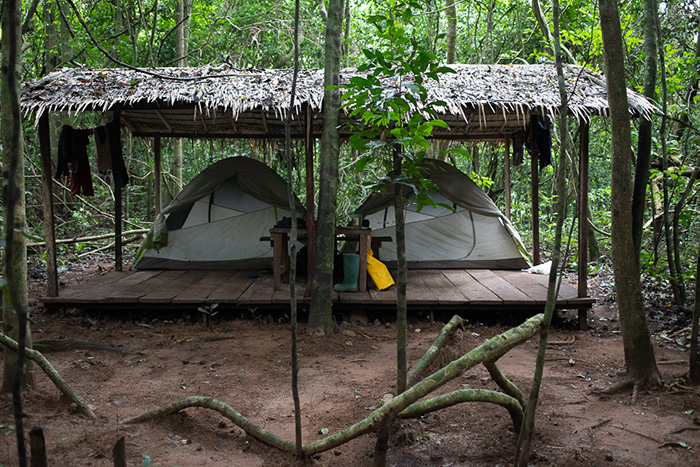
Pictured here is a sleeping platform where Ganga researchers set up their tents for the night. “It is much more comfortable to sleep on a flat surface, protected from the rain, than to camp on the ground,” says Nichols.
Brain Food, Coming Right Up!
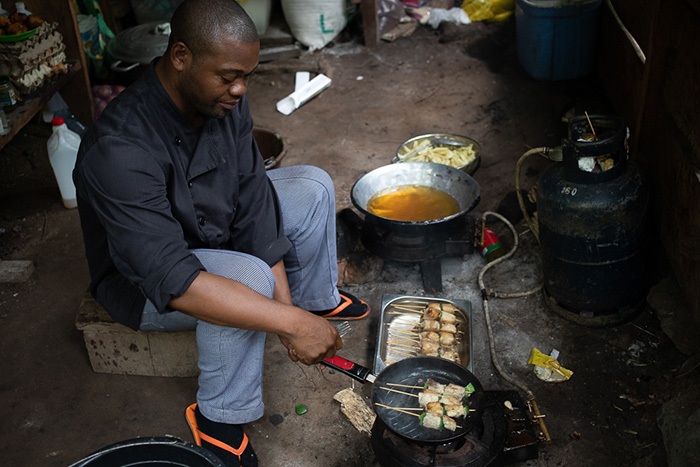
“Anything we cook at the station must be brought along throughout the long journey or caught nearby. A big delicious meal at the end of the day is helpful for keeping everyone’s energy and spirits high,” says Nichols.
Surveying the Land
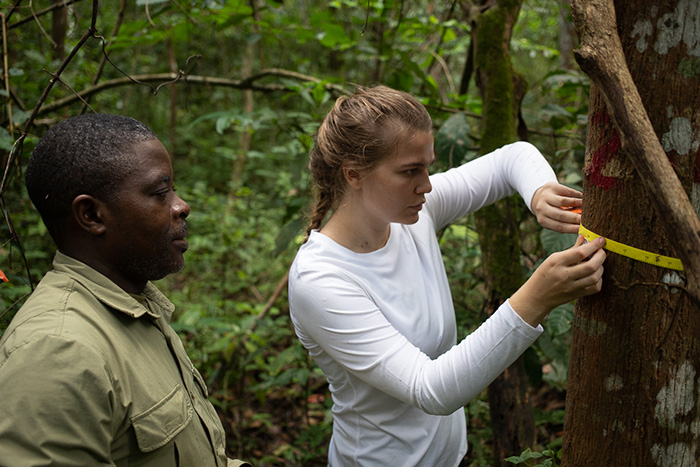
Abwe instructs Drexel environmental science student Brianna Heidenreich on how to measure the DBH (diameter at breast height) of a tree.
Wildlife Watching
Tool creation and use requires high cognitive abilities, and until recently, it was thought that only humans possessed this capacity. Nowadays, primatologists believe that tool knowledge is cultural, taught by mother chimps to their children. While these tools may look like mere sticks, chimpanzees have modified them for specific tasks, such as retrieving honey or termites.
Research by Lamplight
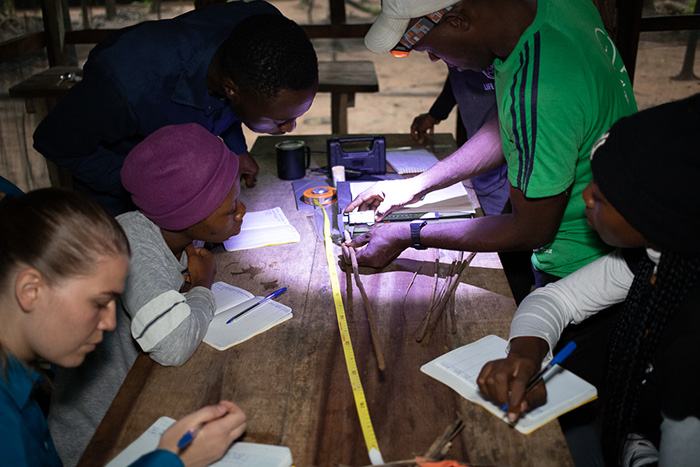
Researchers teach a student how to identify and document chimpanzee tools used for termite fishing.
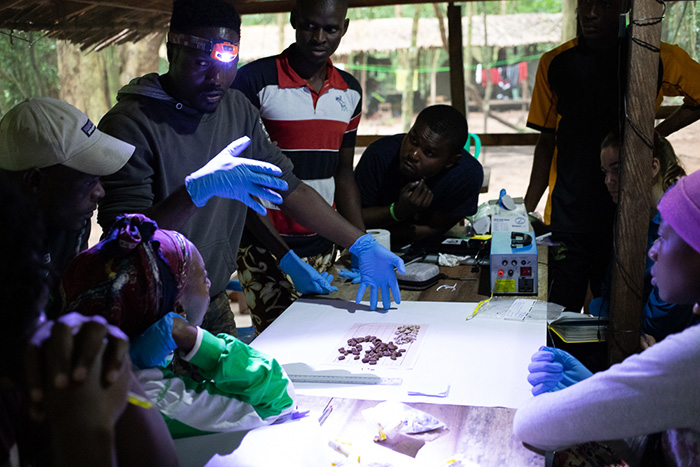
Fabrice Kentatchime, manager of the Ganga Station, teaches students how to identify food remains from chimpanzee feces. Being able to identify the undigested seeds present in chimpanzee fecal matter allows researchers to better understand what chimps are eating at different times of the year and what they eat when fruit is rare in the forest.
Interested in taking a course abroad? Drexel’s Intensive Courses Abroad offer students the opportunity to have an international academic experience in a short period of time, generally during break weeks. To learn more, visit the Education Abroad website.